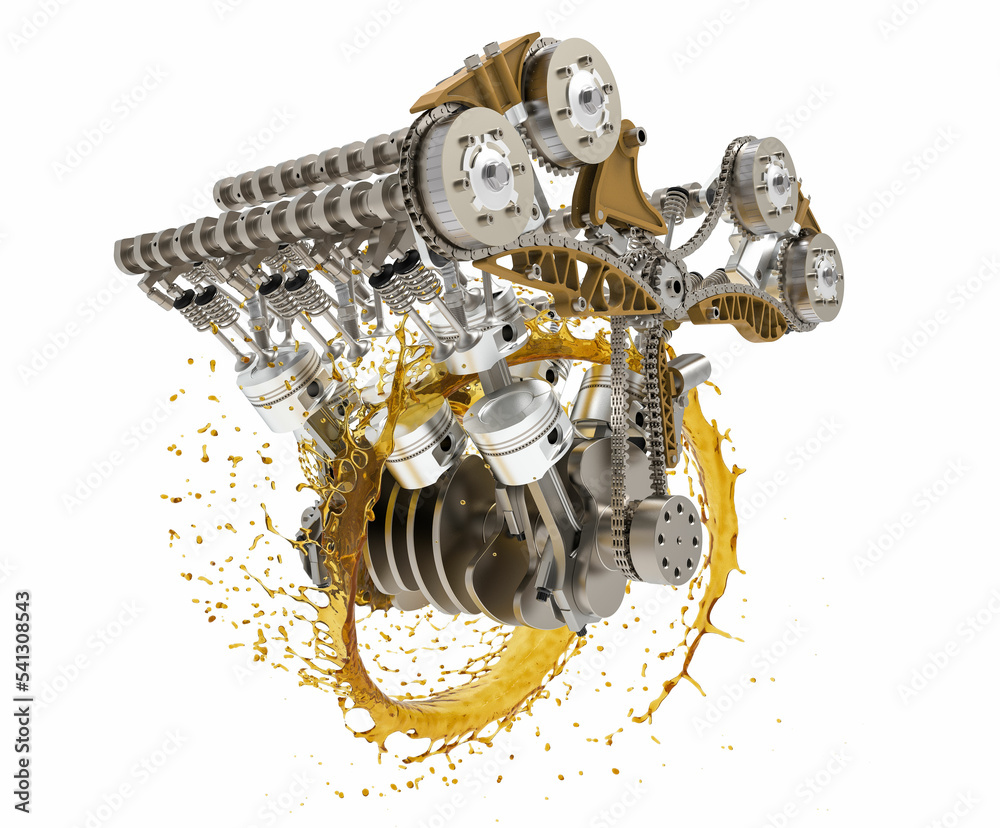When it comes to the maintenance and care of a vehicle’s engine, the timing chain plays a crucial role. It ensures the proper synchronization of the crankshaft and camshaft, allowing the engine’s valves to open and close during each cylinder’s firing. This synchronization is essential for the overall performance and longevity of the engine.
How Does the Timing Chain Function?
The timing chain is a crucial component within the engine, responsible for maintaining the precise timing and coordination of the internal components. It is typically located inside the engine and is designed to be lubricated by the engine oil. The oil serves as a vital element in ensuring the smooth operation and longevity of the timing chain.
Methods of Timing Chain Lubrication
There are several methods of timing chain lubrication, each aimed at ensuring the proper maintenance and lubrication of the timing chain. These methods include:
- Manual lubrication
- Drip lubrication
- Oil immersion
- Pressure lubrication
Each of these methods is designed to deliver the necessary lubrication to the timing chain, thereby enhancing its performance and longevity.

Credit: www.machinerylubrication.com
Effects of Clean and Quality Oil
Clean and sufficient oil is essential for maximizing the lifespan of the timing chain system. Proper lubrication through the use of high-quality oil can prevent premature component failure and ensure the smooth operation of the timing chain. It is crucial for vehicle owners to adhere to regular oil maintenance schedules to guarantee the optimal functioning of the timing chain.
Impact of Low Oil Levels
Low oil levels can have detrimental effects on the timing chain. Operating the timing chain under low oil pressure conditions can lead to significant component wear and potential catastrophic failure. Therefore, maintaining the recommended oil levels is crucial for ensuring the proper lubrication of the timing chain throughout its lifespan.
Choosing the Right Oil
Using the correct type and quality of oil is paramount in ensuring the longevity of the timing chain. Using the wrong oil can lead to accelerated wear and potential damage to the timing chain. Vehicle owners should always refer to the manufacturer’s guidelines to determine the appropriate oil specifications for their specific engine.
Oil Change and Timing Chain Noise
Changing the engine oil can have a direct impact on the noise levels produced by the timing chain. Depending on the underlying cause of the noise and the type of oil used, an oil change can potentially alter the tone and reduce the noise emitted by the timing chain. However, it is essential to consider various factors before concluding the effectiveness of an oil change in addressing timing chain noise.
Expert Insights on Oil and Timing Chains
Experts emphasize the critical role of engine oil in lubricating the timing chain and ensuring its proper functioning. They stress the importance of using high-quality oil that meets the manufacturer’s specifications to prevent premature wear and maintain the optimal performance of the timing chain system.

Credit: stock.adobe.com
Frequently Asked Questions
How Do You Lubricate A Timing Chain?
To lubricate a timing chain, there are four common methods: manual, drip, oil immersion, and pressure. Adequate lubrication is crucial for the chain’s longevity. Clean and sufficient oil is essential for maximum life from your timing system. Premature component or complete system failure can often be traced to oiling issues.
The oil in the engine lubricates the timing chain, making oil maintenance important as well.
Should I Oil My Timing Chain?
Yes, oil is necessary to lubricate the timing chain in your vehicle’s engine. Adequate lubrication with clean and quality oil is essential for the longevity and proper functioning of the timing chain system. Insufficient lubrication can lead to premature wear and potential system failure.
Ensure that you use the correct type of oil specified by the manufacturer to maintain optimal lubrication throughout the lifespan of the timing chain.
Can Low Oil Affect The Timing Chain?
Yes, low oil can affect the timing chain. When operating under low oil pressure conditions, the timing chain can experience increased wear and eventual failure. To ensure proper lubrication and prevent premature component failure, it is important to use oil that meets the original equipment specifications when installing timing chain replacements.
Will Oil Change Stop Timing Chain Noise?
Yes, changing oil with the right type can reduce timing chain noise. Adequate lubrication is crucial for the timing chain’s lifespan.
Read More: Can a Timing Chain Last 200,000 Miles?
Conclusion
In conclusion, oil plays a vital role in lubricating the timing chain within a vehicle’s engine. Proper maintenance of the engine oil, adherence to recommended oil change intervals, and the use of high-quality oil are essential factors in ensuring the longevity and optimal performance of the timing chain. By understanding the significance of oil in lubricating the timing chain, vehicle owners can take proactive measures to maintain their engine’s integrity and performance.


